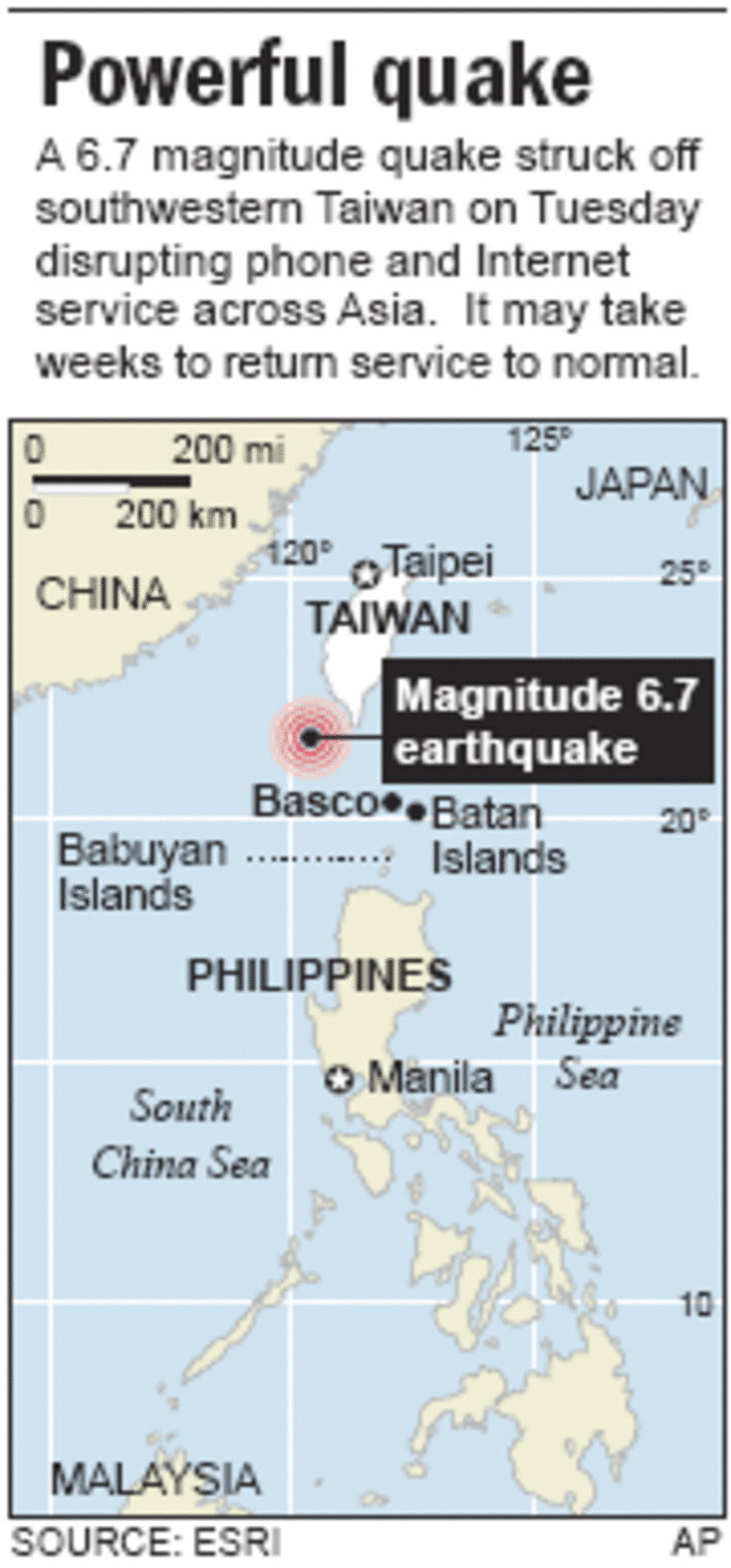Telecommunications around Asia were severely disrupted on Wednesday after earthquakes off Taiwan damaged undersea cables, slowing Internet services and hindering financial transactions, particularly in the currency market.
International telephone traffic was restricted from some countries and Internet access slowed to a crawl. Sources working with Asian telecoms providers said it could take several weeks before all the cables were repaired.
South Korea’s top fixed-line and broadband service provider, KT Corp, said six submarine cables were knocked out by Tuesday night’s earthquakes.
“Twenty-seven of our customers were hit, including banks and churches,” a KT spokesman said. “It is not known yet when we can fully restore the services.”
The foreign exchange market suffered in Seoul, with trade in the won extremely slow during the morning.
Some disruption was also reported in the important Tokyo currency market but the EBS system that handles much dollar/yen trading appeared to be working.

Global information company Reuters Group Plc said users of its services in Japan, South Korea and Taiwan had been affected, although dealing services were restored in Tokyo during the afternoon.
In India, back offices and call centers experienced some difficulty, but industry officials said the full extent of the problem would not be known until later in the day when data and voice traffic peaked during European and U.S. business hours.
The main quake, measured by Taiwan’s Central Weather Bureau at magnitude 6.7 and at magnitude 7.1 by the U.S. Geological Survey, struck off Taiwan’s southern coast at 1226 GMT on Tuesday. Two people were killed.
In China, financial markets worked normally but China Telecommunications Group, the country’s biggest fixed-line telephone operator and parent of China Telecom Corp., said the Internet had been badly disrupted.
Phone links and dedicated business lines had also been affected to some degree, it said.
Officials declined to give further details. “Undersea communications cables fall in the area of state secrets,” said a ministry of communications official in Beijing.
Philippine Long Distance Telephone Co. said its Internet service was intermittent and international phone calls had been affected. Rival Globe Telecom said “the entire country’s telecom services to the United States were disrupted.”
Chunghwa Telecom, Taiwan’s biggest telecoms carrier, said two of four major undersea cables out of Taiwan had been affected, initially cutting more than half its international telecommunications capacity.
Calls to Southeast Asia were the worst affected, with less than 10 percent getting through at 0500 GMT — an improvement from the morning, when less than 2 percent succeeded.
KDDI Corp., Japan’s second-largest telecoms company, said communications along submarine cables out of Japan went through Taiwan before reaching Southeast Asian countries, which was leading to disruption, but there were alternative lines.
PCCW, Hong Kong’s main fixed-line telecoms provider, said several undersea cables it part-owned had been damaged. “Data transfer is down by half,” a spokeswoman said.
Singapore Telecommunications (SingTel), Southeast Asia’s top phone company, said traffic was being diverted and repair work was in progress, adding: “Our submarine cables linking to Europe and the U.S. are not affected.”